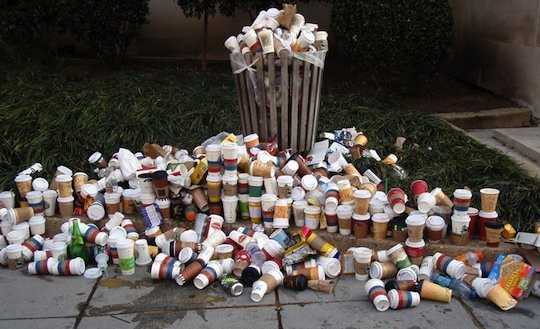LONDON, U.K. -DS Smith, a leading supplier of sustainable packaging solutions, is committed to working with retailers, coffee cup manufacturers, and the recycling industry to try and find a solution to the recycling of disposable coffee cups.
The company is keen to find an effective way to process coffee cups found in many coffee retailers on the high street and supports the Paper Cup Recovery and Recycling Manifesto launched today (27 June 2016). Dr Jim Malone, Head of Recycling at DS Smith, said:
We recognise the recyclability of coffee cups is a significant issue. When the cups are improperly discarded they are a highly visible source of litter. There are a number of pieces of research being undertaken to produce recyclable cups and we are willing to collaborate with all sectors of the supply cycle to engineer a recyclable solution.
The Manifesto pledges that: “The paper cup supply chain agrees to work together to ensure paper cups are designed, used, disposed of and collected to maximise the opportunities for recycling by further investment and funding of recycling, disposal and collection projects.”
The objective is to significantly increase paper cup recovery and recycling rates by 2020.
Over 30 signatories have signed up to the manifesto, representing each stage of the paper cup supply chain from raw material suppliers, cup manufacturers and retail high street brands to waste and recovery operators and paper reprocessors.
Waxed and polyethylene-lined paper coffee cups are not ideal feedstock and are treated as a contaminant in DS Smith’s packaging mill feed stocks.
This is because these cups have to spend a longer time in pulpers to break down the paper fibres for recycling compared with mono-material recyclable paper and card. Peter Clayson, General Manager for External Affairs and Business Development, added:
The company has experienced quality issues with its final reprocessed paper when wax and polythene contaminated fibres from paper cups become impregnated in the final product.
At the current time there are few mills in the UK that are set up to deal with specific multi-material wastes, such as milk and juice cartons. These mills can reprocess only small quantities of waxed and lined paper cups.


















